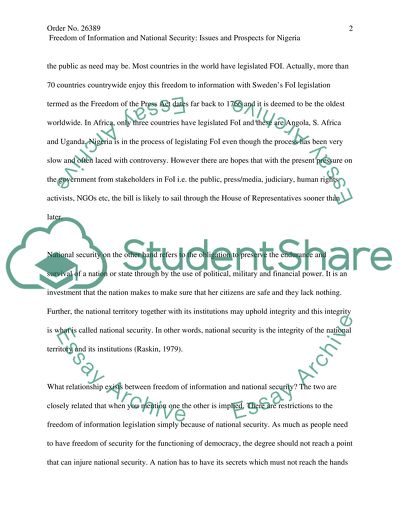Cite this document
(“Freedom of Information in Nigeria Term Paper Example | Topics and Well Written Essays - 2500 words”, n.d.)
Freedom of Information in Nigeria Term Paper Example | Topics and Well Written Essays - 2500 words. Retrieved from https://studentshare.org/miscellaneous/1508634-freedom-of-information-in-nigeria
Freedom of Information in Nigeria Term Paper Example | Topics and Well Written Essays - 2500 words. Retrieved from https://studentshare.org/miscellaneous/1508634-freedom-of-information-in-nigeria
(Freedom of Information in Nigeria Term Paper Example | Topics and Well Written Essays - 2500 Words)
Freedom of Information in Nigeria Term Paper Example | Topics and Well Written Essays - 2500 Words. https://studentshare.org/miscellaneous/1508634-freedom-of-information-in-nigeria.
Freedom of Information in Nigeria Term Paper Example | Topics and Well Written Essays - 2500 Words. https://studentshare.org/miscellaneous/1508634-freedom-of-information-in-nigeria.
“Freedom of Information in Nigeria Term Paper Example | Topics and Well Written Essays - 2500 Words”, n.d. https://studentshare.org/miscellaneous/1508634-freedom-of-information-in-nigeria.


